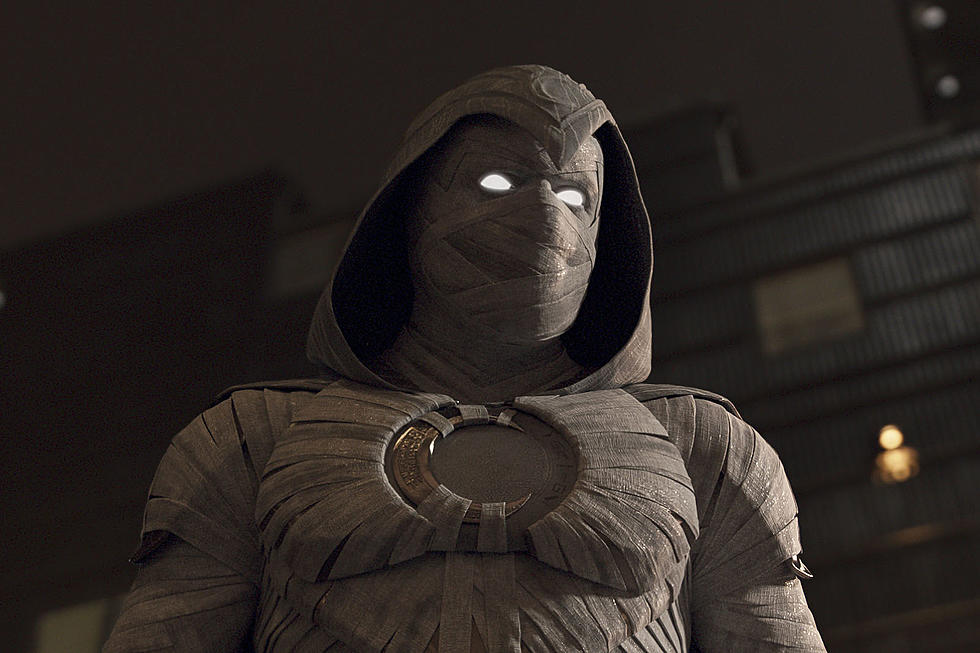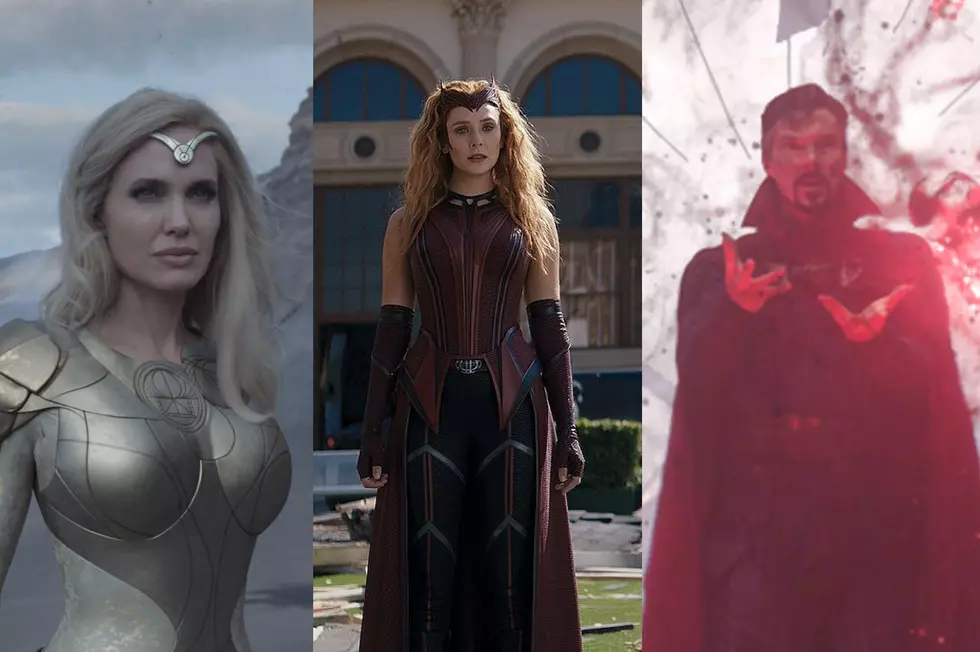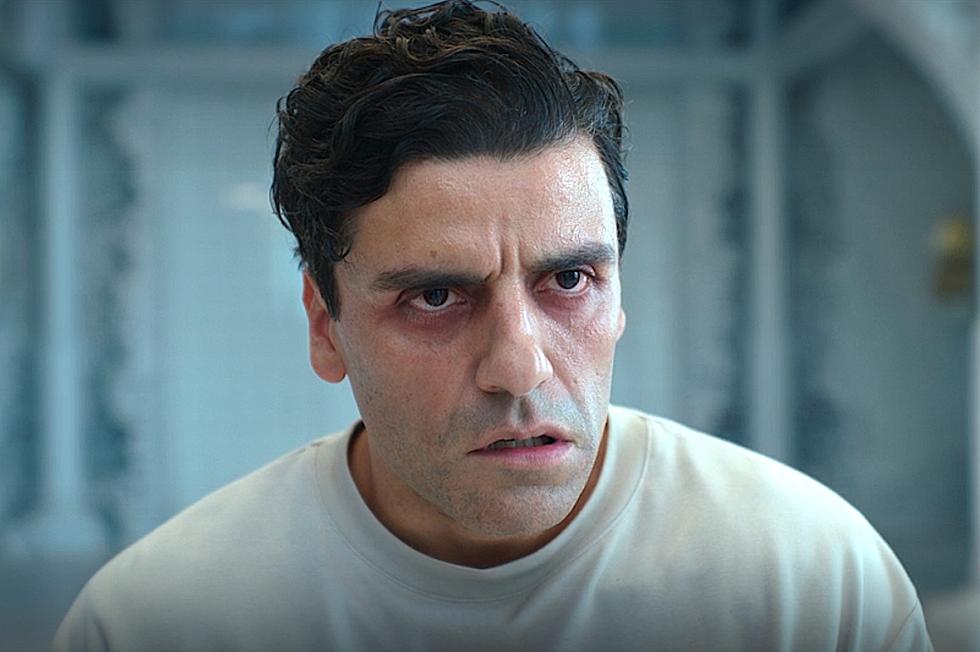
‘Moon Knight’ Marks a Big Change for Marvel’s TV Series
Moon Knight should be a slam dunk. It’s got one of the best actors alive, Oscar Isaac, playing one of Marvel’s juiciest characters, a mentally unbalanced vigilante named Moon Knight. It’s got another great actor, Ethan Hawke, playing his adversary, the mysterious Arthur Harrow. It’s got a talented creator in Jeremy Slater, and a skilled batch of directors including Mohamed Diab and the team of Aaron Moorhead and Justin Benson. A month or two ago, it was my most most anticipated Marvel Cinematic Universe TV show to date.
Then it premiered. And now, three weeks in to Moon Knight’s six-episode run, I find myself way more frustrated than satisfied. The ingredients are all here for another solid Marvel Disney+ TV series. But something is missing.
Or, rather, something is different about Moon Knight than all of the previous MCU series on Disney+, even though the show has continued to explore the main theme of all of these Marvel’s TV shows: The murky and complicated nature of human identity. That’s been present in each Marvel streaming show, but it’s particularly important to Moon Knight, where Isaac plays a meek museum gift shop manager named Steven Grant who discovers he is just one of several personalities sharing a single body — and that one of those other personalities is a mercenary turned “avatar” for the Egyptian moon god Khonshu.
Suddenly, Steven gets swept up in a mad dash around the world for a mystical scarab coveted by Heller, who worships another Egyptian god named Ammit. Steven also needs to contend with his other personality, Marc Spector, who isn’t too keen to share control of their body — and who is married to a woman named Layla (May Calamawy) that Steven has never met.
The most interesting part of Moon Knight is the notion of these wildly different men sharing a single body. That concept takes the subtext at the center of most superhero stories — where, for example, Peter Parker has to decide whether to go on his date with Mary Jane or save Flash Thompson from Doctor Octopus — and turns it into literal text. How do you maintain a job, a private life, and a family, when you share your physical being with another person with another job, another private life, and another family? Steven can go to sleep in his bed and wake up in Austria, with no memory how he got there and none of the skills a man might need in that situation in order to navigate his way home. That’s really fascinating!
But that’s not what Moon Knight is about. Instead, it’s a glossy treasure hunt, with Marc/Steven traveling around, trying to retrieve one ancient artifact after another. On Episode 1 and 2, they need to find and protect a magical scarab. This week, everyone wants an all-important sarcophagus.
Steven and Marc are occasionally at odds, like in Episode 3 when Marc needs Steven’s expertise in Egyptology to help solve a riddle hidden in yet another ancient MacGuffin. But Moon Knight doesn’t really explore what it’s like to suffer from a multiple personality disorder. It’s not even about what it’s like to live a dual life as a superhero. It’s just one big chase. If that chase was really exciting, then Moon Knight might still be a worthwhile show. But it’s not; every episode contains brief bursts of action, followed by endless scenes of characters explaining things: The nature of Egyptian gods and their avatars; the specifics of the Ennead; how Steven’s dissociative identity disorder works.
That’s the biggest difference between Moon Knight and the previous Marvel Disney+ shows like Loki or The Falcon and the Winter Soldier: It stars a character who hasn’t appeared in a single Marvel movie or TV show before, so it has way more exposition to churn through as a result. Marvel correctly assumed viewers knew enough about Wanda and Vision and their relationship from the Avengers movies that they could avoid massive dumps of info on their lives. That gave it time to develop its various mysteries, and to play with its spoofs of classic TV sitcoms. Similarly, while Hawkeye introduced a new hero to the MCU in the form of Kate Bishop, it also had familiar old Clint Barton, who had already been through six movies worth of character development, to guide audiences through the story.
Moon Knight, on the other hand, features an entirely new cast of characters and gods and Marvelized Egyptian mythology and it all needs to be clarified for viewers. (It also stars a character who is way less well-known, even among many comics readers, than Loki or Hawkeye.) Every time Moon Knight ramps up into a more intense register, it inevitably has to slow down again and again to keep the audience up to date on who needs what ancient object and why. It’s proof that it’s really hard to do an origin story and a thriller all at once. Hopefully the second half of the season strikes a better balance of those two elements — and finds a little more room to explore its hero’s fractured psyche.
Sign up for Disney+ here.
Every Marvel Disney+ Show, Ranked From Worst to Best
More From Mix 97.9 FM










